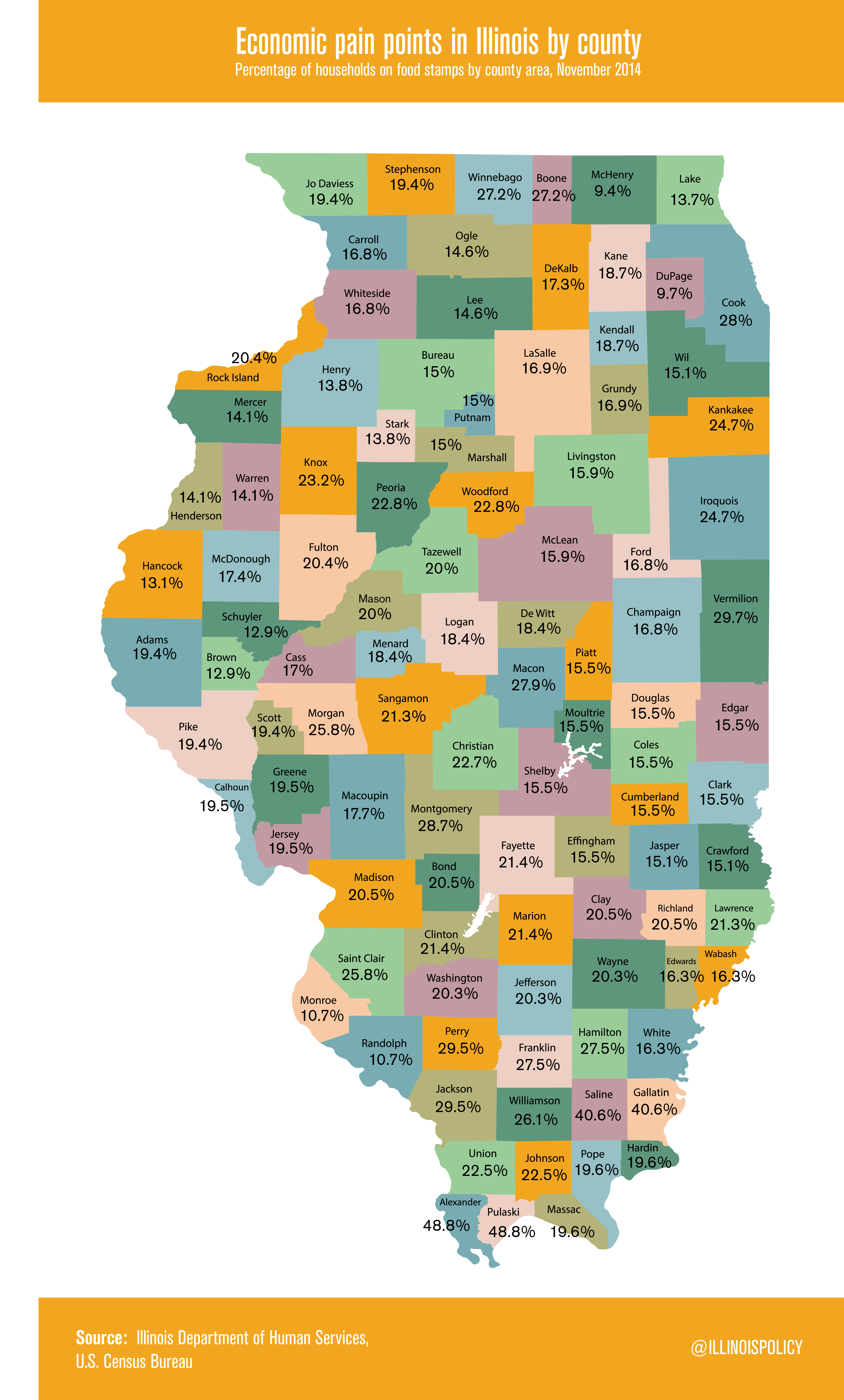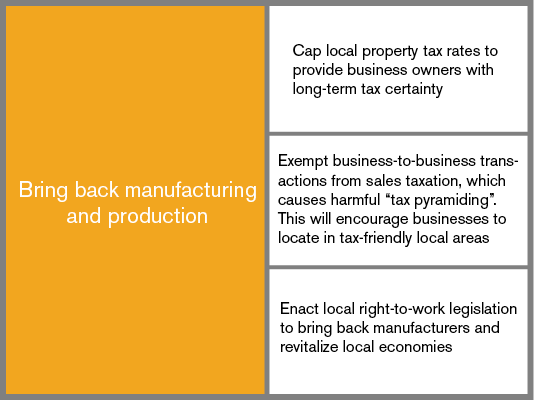Illinois’ economic crisis requires local solutions
Localities don’t need to wait for Springfield to make the state work again.
Springfield’s policy missteps have walked Illinois into a financial and economic crisis. As a result, statewide reform legislation is needed to breathe life back into the Illinois economy. In addition, local areas should step up to the plate to provide business-friendly solutions.
Illinois’ anti-growth policies and slow job creation have held back local areas. In November, Illinois hit a state record for the number of households on food stamps. Downstate communities have been especially hard-hit by the state’s loss of manufacturing jobs and lack of energy production, which is reflected in the percentage of households on food stamps in those communities.
Illinois localities have strong “home rule” powers, which give them a lot of muscle to flex when they look to make their economies work again. Local reform can start with making it easier to start up. Illinois municipalities can become “24-hour cities” by setting up regulatory systems in such a way that businesses can start up within 24 hours. In addition, local licensing and testing procedures that are duplicative with those at the state level should be eliminated, and local regulations simplified. Zoning laws should also become more flexible to encourage home-based startups.
One of the surest ways to combat unemployment is to legalize the shared economy. The shared economy allows people to use basic skills, such as driving, cooking and cleaning, to make ends meet when times are tough.
Local areas can further flex their home-rule muscles by enacting major tax and regulatory reforms. Putting a cap on property-tax rates, a reform that worked wonders in Indiana, will provide businesses with long-term tax certainty. Sales taxes should be reformed to exempt business-to-business transactions, which will prevent harmful “tax pyramiding” and encourage the clustering of businesses that serve one another. In addition, local areas can follow the example of Warren County, Kentucky, and bring back manufacturing jobs by enacting local Right-to-Work zones.
Illinois has a long way to go to make a comeback, but localities don’t need to wait for Springfield to make the state work again. Local reforms to encourage free enterprise can drive the state’s economy, and get this comeback going.




